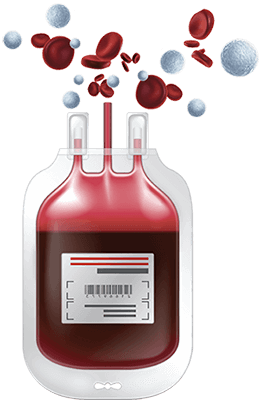Canada's Largest & Oldest Cord Blood Bank
Get ready to hear the dreaded “no” from your toddler as he or she starts to assert independence.
Milestones This Month

Most toddlers can
- Follow simple instructions like “pick up your toy”
- Recognize a few new words each week
- Empty contents from a container

Half of the toddlers can
- Walk well
- Point at the correct body part when asked
- Initiate play

A few toddlers can
- Use utensils
- Push or pull a toy while walking
- Match lids with the correct container
Toddler Development at 14 Months
Your 14-month-old is likely beginning to walk at this stage. If not, there is no need to worry. Some toddlers are completely content crawling (and are amazing crawlers at this stage) because crawling is good enough to get him or her from point A to point B.
Your toddler’s communication skills are becoming more sophisticated and the vocabulary is growing. He or she is able to understand and respond to simple commands and is able to let you know what he or she wants by pointing, grunting and gesturing. Reading, singing and talking to your toddler often will help along this language development.

Toddlers are naturally curious creatures, which means he or she is getting into everything around the house. The best way to tackle this curiosity is to give your toddler the stimulation by way of games. Putting blocks in a bucket, stacking cups, pop-up toys and even a simple roll of toilet paper will keep your toddler entertained for a significant amount of time.
In the coming months, you are likely to hear the dreaded “no” from your toddler when you ask him or her to perform a simple task. Asserting independence is a natural part of growing up. The key is establishing boundaries and staying consistent with your disciplining style.

Toddler Tip
Store away your breakables. Toddlers do not understand the idea of fragility. So, putting away that favourite flowerpot or the crystal figurine is the best thing to do right now.

Supporting Your Toddler
Feeding
Toddlers can be picky eaters. How do you feed a picky eater? Try introducing a variety of different foods to your toddler. Don’t be afraid to add in herbs and spices, particularly those that you may have craved when you were pregnant. According to some moms, toddlers may prefer tastes they have already encountered in utero.
Teething and Sleep
Your toddler should be getting anywhere between 11 to 14 hours of sleep per day. Most 14-month-olds are sleeping around 11 hours at night and filling the rest of their sleep requirements with one or two daytime naps.
Anywhere between 13 to 19 months, toddlers cut their first set of molars. Some toddlers are not bothered by this at all, while others turn irritable. Your toddler may turn into a picky eater, because it feels good to bite down on the sore area or because it hurts too much when they bite down. He or she also may have trouble sleeping because of the pain. A cool teething toy or a washcloth can help ease the pain. You may also want to try giving your toddler an over-the-counter pain reliever with ibuprofen at night to help him or her sleep.

Separation Anxiety
Separation anxiety peaks during 10 to 18 months, which means you may have a very clingy toddler for a while. Your little one may even refuse to stay with family members he or she was previously comfortable with.
Separation anxiety at this age is thought to be triggered by the fact that your toddler is unable to express his or her feelings. Your little one can now understand what you are saying but is not able to respond the way he or she would like. This can lead to frustration and anxiety. As a result, your toddler gets clingy and expresses frustration through crying.

